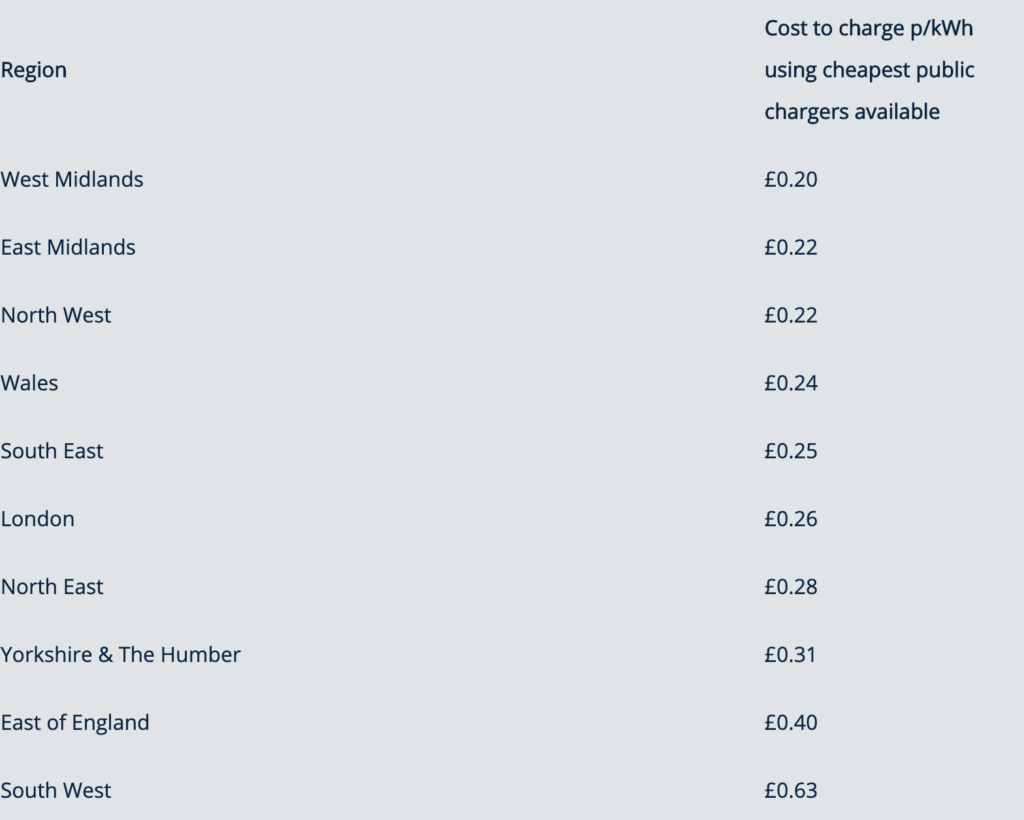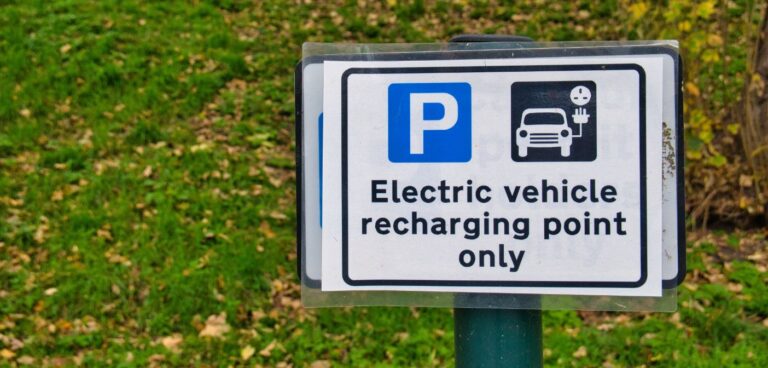New data has revealed a North-South divide for EV drivers paying for public charging points across UK council areas, with drivers in the South paying over a quarter (28%) more than those in the North of England and Wales.
According to British Gas, there is a postcode lottery when it comes to EV charging costs with 21 councils across England and Wales, including Leeds, Bridgend and Woking, where it is completely free to charge your EV using council owned public chargers. While there are drivers in other areas who are charged up to £4.00 for every kilowatt hour.
Under a Freedom of Information request, the research found paying for EV charging in the South West is more than 57% higher than the second most expensive region, the East of England. In the South West the cheapest charger will set drivers back 63p per kWh on average, while in the East of England it costs 40p per kWh to charge.

Furthermore, prices also vary per council. The new data reveals the most expensive public chargers are within Bournemouth, Christchurch and Poole council on the south coast and Cotswold council in the South West. Local EV owners will be charged £4.00 per kWh if they choose the most expensive charger in either of these areas.
Lucy Simpson, head of EV enablement at British Gas, said: “The latest figures released today [26 January] demonstrate the need for all UK councils to play their part in supporting the transition to electric vehicles. Currently, we have 21 progressive councils that have decided to support local EV adoption, so we would expect a greater uptake of EVs to come through in these areas than in councils where it is expensive to charge. If charging doesn’t become more accessible in these areas, we could see a slower rate of adoption.
“Whilst the government does offer certain financial incentives at the point of purchase, charging costs are still a barrier to electric vehicle adoption. With 29% of drivers citing expensive public charging as one of the main reasons holding them back, it’s unfair that those who don’t live in areas with either free or low cost charging are being discriminated against based on their address. If this continues, we risk leaving a huge number of drivers behind in the transition to electric cars.”





